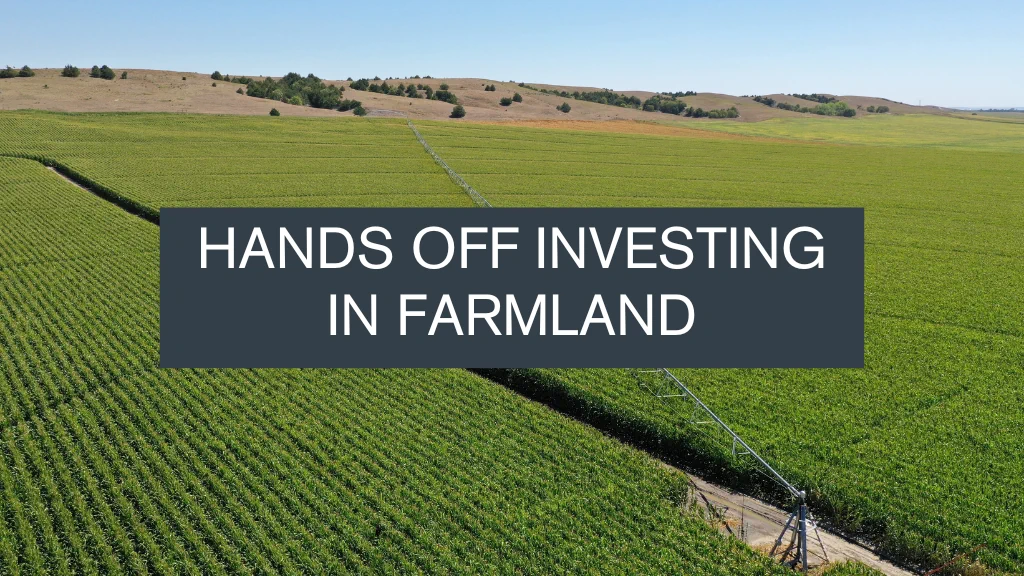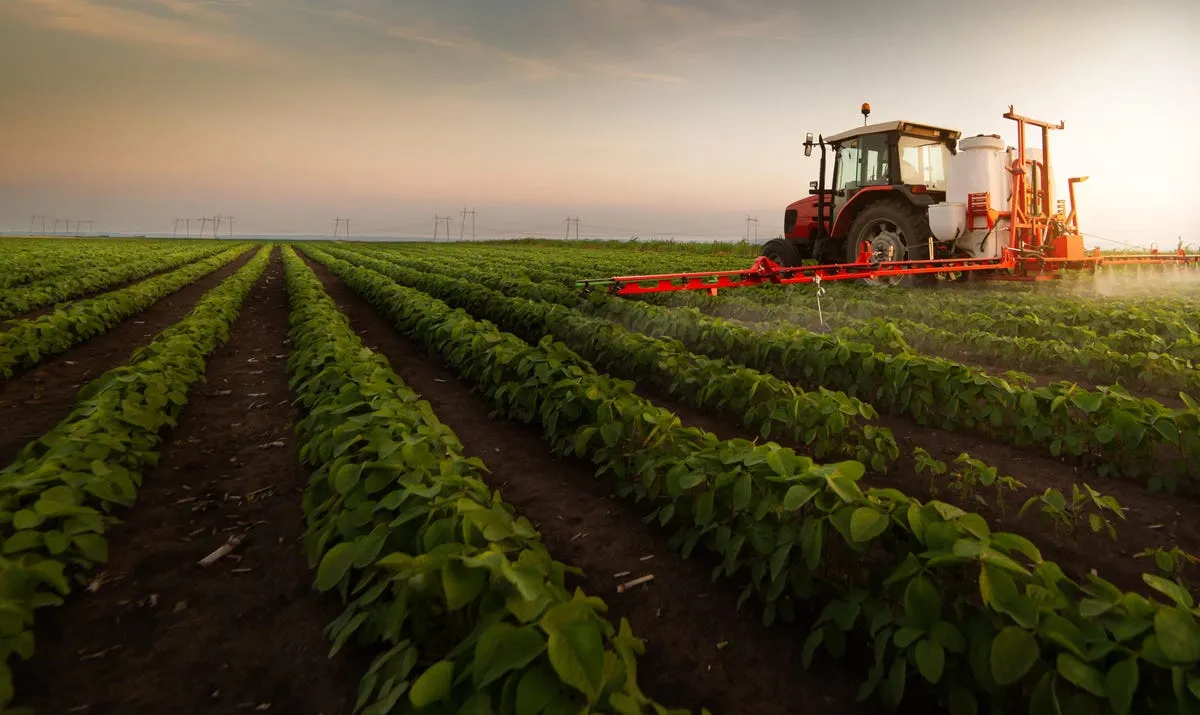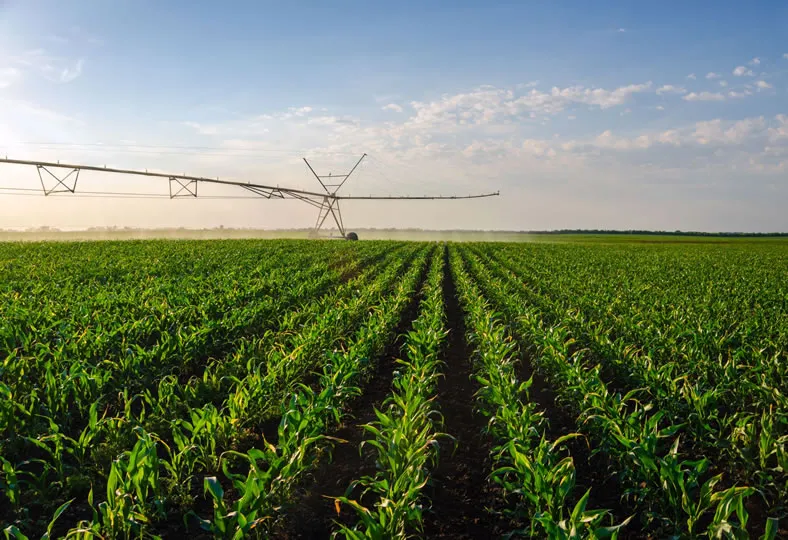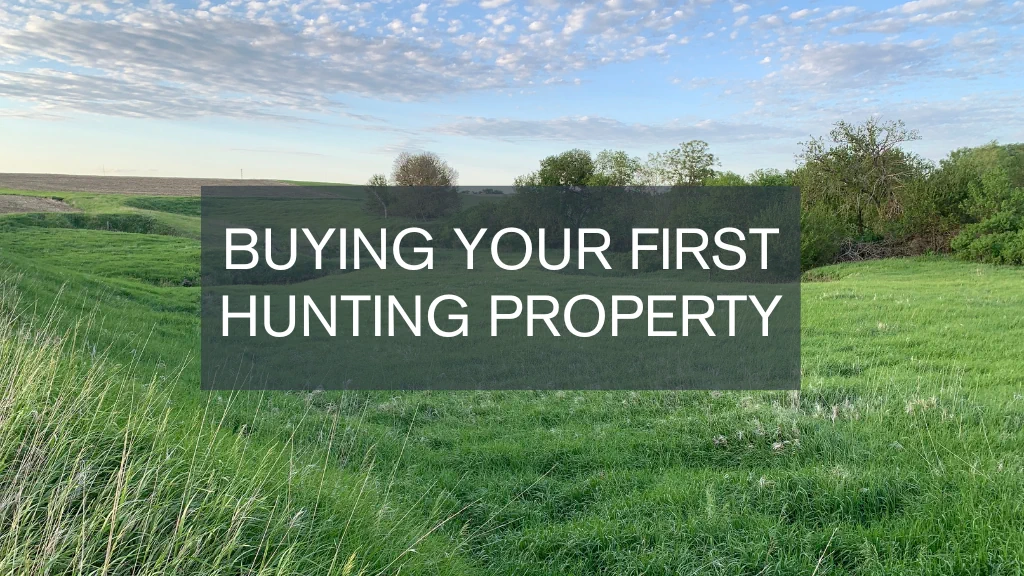Hands off Investing in Farmland
February, 2023

Hands off Investing in Farmland
Investing in farmland isn’t a new trend, however when a group of professional athletes, including Cincinnati Bengals quarterback Joe Burrow, purchases a corn and soybean farm in Iowa, it brings attention to this asset class.
How do the mechanics of acquiring the asset, managing the asset, and making the investment worthwhile actually work? We are going to walk you through how to become a hands-off investor in the states of Nebraska and Iowa.
Searching for Land
When seeking out any type of land, you will need to start by narrowing your criteria. If you’re considering cropland, you’ll need to determine whether to invest in dryland or irrigated ground. We covered this in last month's article where we discussed the 2022 drought impacts in Nebraska and how irrigated ground was able to maintain production, while dryland was hit hard.
The next most important quality is the location of the farmland you wish to invest in. The location you pick will also impact your choice between irrigated or dryland. The main risk with hands-off investing in farmland is your tenant’s ability to pay their rent. Certain parts of the state are more prone to hail and wind, which can be detrimental to an annual crop, for example.
After you have a general idea of your preferred location, you can start looking at more specifics of the land, such as soil types, availability of water and location of wells relative to the pivots. These finer details can dramatically impact the production and ROI of the asset. If you are feeling overwhelmed already, you can get assistance with all of these details from an American Legacy Land Co. agent.
Managing Your Land and Tenants
The next thing you’ll want to consider is seeking out a land manager. This individual will be responsible for managing the daily operations of your asset including the management of the revenue and expenses, lining up a tenant to rent from you, and ensuring the asset is well cared for. Of course, you also have the option to manage the property yourself. An American Legacy Land Co. Agent can help you seek out a land manager or find a tenant if you are in a position to manage the property yourself.
In order to find the right tenant, you need to do some “boots on the ground” work. You can start by asking around the local farmer meetups like the gas station, the co-op, or wherever you get coffee in town. You can also check with crop insurance agencies, seed corn dealerships or individually scout out other properties to see how they are cared for and managed.
Keep in mind - the higher you raise the rent, the less the tenant may prioritize building up a soil fertility profile and upkeep on your ground may become minimal. The property upkeep doesn’t stop with the land, it also includes irrigation equipment as well as sustaining weed control on the entire property. You will want to find someone who treats the ground as if it is their own property.
Financing Your Purchase
Rents on your investment can vary substantially from $15/acre to $500/acre, depending on ground type and production. Pasture ground found in the more arid northwestern part of the state is likely to rent closer to the $15/acre rate. Highly productive ground with a center pivot irrigation system is likely to rent closer to the $500/acre rate as these areas have proven track records to show higher production and yields to justify the rent amounts. Pasture rates can also be based on the holding capacity of cow/calf pairs and not always on a per acre basis.
The price you will pay for land in Nebraska correlates with the potential rental rate, which is ultimately derived from the production on the ground. Nebraska land prices continue to break new records in the early part of 2023 with irrigated ground costing upwards of $16,000/acre. If you are able to collect $500/acre on this ground, that is a 3.125% return, which is a fabulous return in farmland. We can’t forget to factor in property taxes, but a 2%-3% return is what you can expect in today’s market for farmland. These returns may seem low, but if rents continue on the trajectory they are on today, you’ll look back in 10 years and be happy to have purchased the land when you did.
Farming is a very leveraged business and the income you make on the property won't be enough to service the debt of the property. Therefore, you will be required to use other sources of income to qualify for a loan on the property. In many cases, lenders will lend up to $xxxx/acre in that area and this number can be as low as half of the purchase price. If you don’t have the money to put half down on the property, they will be looking at your other sources of income to qualify you for that loan.
Remember also to factor in how much of the land you’re considering can actually produce a profit. For example, you might be buying 160 acres of land, but only 130 of it is tillable, which is the actual number of acres that can be rented to a tenant. It’s possible the remaining 30 acres isn’t profitable, or perhaps it has another possible use, like great deer habitat that could be leased out separately for a little extra income on the property.
Another option instead of cash renting your land is to do crop sharing with your tenant, but this is a lot more hands-on. Crop sharing is where you split up the harvested crops at the end of the season in a ⅔ tenant and ⅓ landlord split, for example. In this situation, each party is responsible for storing their crop and bringing it to market. This isn’t a great option for a hands-off investor, but it may be a possibility for some.
Farmland can be a great solution if you are offloading another piece of investment real estate and looking to execute a 1031 exchange. By doing this you would be able to defer both capital gains tax and depreciation recapture, which in total are in the 50% range in Nebraska and Iowa. A 1031 can be done when selling real estate to buy real estate. You can no longer do one when selling a business to buy real estate.
Property Owner Responsibilities
The relationship between the landlord and tenant is completely negotiable in who is responsible for what. If your goal is to be a hands-off investor in farmland, you’ll want to have a system in place to minimize the responsibilities you have in the management of your asset. Hiring a land manager will keep your investment mostly hands-off, but if you are going to manage yourself, finding the right tenant is very important to the success of your asset.
Reach out to an American Legacy Land Co. Agent today to help you find that new investment to add to your portfolio.
Written by American Legacy Land Co.






